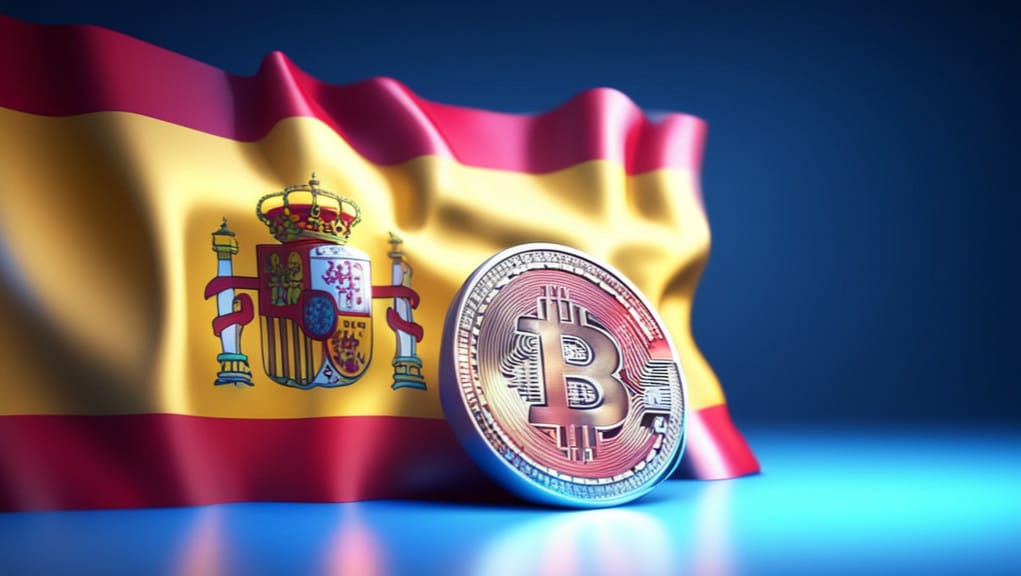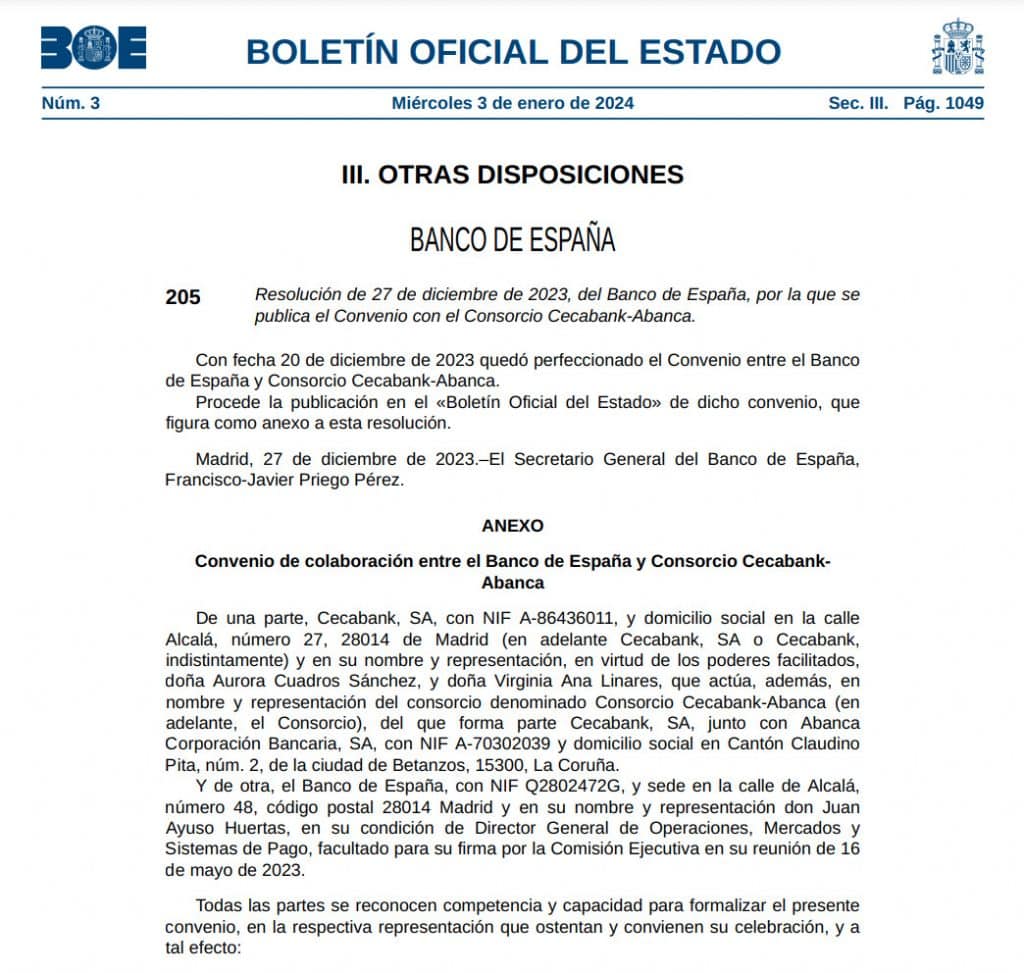Bank of Spain Collaborates with Cecabank, Abanca and Adhara Blockchain for CBDC Trial


In Brief
Bank of Spain (BDE) announced a collaboration with Cecabank, Abanca, and Adhara Blockchain for its CBDC pilot.

Bank of Spain (BDE) announced a collaboration with Spanish banks Cecabank, Abanca and the UK-based liquidity management company Adhara Blockchain for the central bank digital currency (CBDC) test. The pilot of the wholesale CBDC is scheduled for the next six months and will involve simulating the processing and settlement of interbank payments.
This will be achieved using a single tokenized wholesale CBDC and by exchanging several wholesale CBDCs issued by different central banks.
Another component of the test, conducted with the support of the consortium Cecabank-Abanca, entails utilizing the wholesale CBDC for the reconciliation of a simulated tokenized bond. The Spanish CBDC project will operate autonomously from the digital euro initiative, which would apply to all Eurozone economies if implemented.
Three companies for collaboration were chosen from the 24 applications The Bank of Spain received over the past year.

Spain Navigates Digital Asset Evolution
In recent years, Spain has undergone notable changes in its cryptocurrency landscape, showcasing an evolution in adoption patterns, regulatory approaches and technological advancements.
The number of cryptocurrency companies officially registered to operate in Spain increased by approximately 56% in 2023, with international platforms complementing domestic firms in obtaining licenses as virtual asset service providers to operate within the country.
Moreover, Spanish regulators have recently taken an active stance toward the cryptocurrency market. In October, the Spanish Ministry of Economic Affairs and Digital Transformation announced its intention to implement the European Union’s Markets in Crypto-Assets Regulation (MiCAR) six months ahead of the deadline.
In the same month, the Bank of Spain offered detailed insights into the characteristics and potential applications of the digital euro.
However, despite these notable developments, the Spanish population hasn’t shown considerable enthusiasm towards the digital euro. According to a recent BDE survey, only a fifth of the respondents expressed readiness to incorporate the pan-European CBDC into their routine payment methods, while a majority of 65% indicated reluctance towards its use, raising questions about the further acceptance of CBDCs in the Spanish financial landscape.
The initiation of the CBDC pilot highlights the country’s strategic approach towards digital asset adoption, positioning it as a forward-thinking player in the global landscape of decentralized financial technologies.
Disclaimer
In line with the Trust Project guidelines, please note that the information provided on this page is not intended to be and should not be interpreted as legal, tax, investment, financial, or any other form of advice. It is important to only invest what you can afford to lose and to seek independent financial advice if you have any doubts. For further information, we suggest referring to the terms and conditions as well as the help and support pages provided by the issuer or advertiser. MetaversePost is committed to accurate, unbiased reporting, but market conditions are subject to change without notice.
About The Author
Alisa, a dedicated journalist at the MPost, specializes in cryptocurrency, zero-knowledge proofs, investments, and the expansive realm of Web3. With a keen eye for emerging trends and technologies, she delivers comprehensive coverage to inform and engage readers in the ever-evolving landscape of digital finance.
More articles

Alisa, a dedicated journalist at the MPost, specializes in cryptocurrency, zero-knowledge proofs, investments, and the expansive realm of Web3. With a keen eye for emerging trends and technologies, she delivers comprehensive coverage to inform and engage readers in the ever-evolving landscape of digital finance.



















































